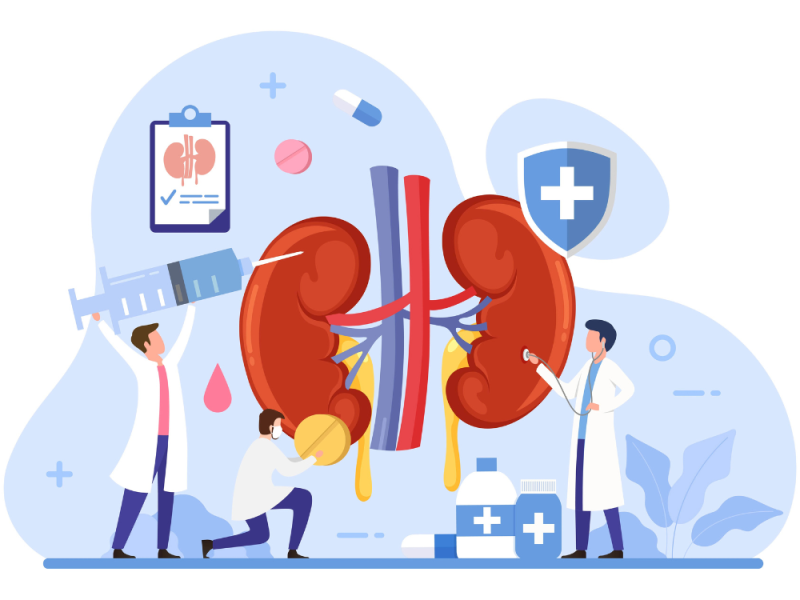
Person with diabetes mellitus, hypertension, heart diseases, liver diseases, auto immune diseases, family history of kidney failure, previous acute kidney injury episodes, chronic use of pain killer medications should get evaluated for kidney diseases.
Ideally, any healthy person with age more than 30-35 years, should get kidney function test done at least once a year, even in absence of any symptoms.
Serum Creatinine:
S Creatinine is a marker of overall kidney function.
As kidney function decreases, serum creatinine value increases.
With S. Creatinine value, eGFR (Glomerular Filtration Rate) can be estimated.
Chronic kidney disease is staged according to eGFR value in 5 stages.
Urine Albumin Creatinine ratio (UACR)
It is an estimate of protein loss in urine. Higher the proteinuria, higher risk of progression in chronic kidney disease.
In many cases, proteinuria is an early marker of CKD even before rise in creatinine.
Therapies to target proteinuria reduction, help in retarding progression of CKD.
Stages of Chronic Kidney Disease according to eGFR and Albuminuria
| Stage | eGFR ml/min/1.73 sqm | Albuminuria (UACR) (mg/g) | ||
| a1 (<30) | a2 (30–300) | a3 (>300) | ||
| 1 | >90 | |||
| 2 | 60–90 | |||
| 3a | 45–60 | |||
| 3b | 30–45 | |||
| 4 | 15–30 | |||
| 5 | <15 | |||
CKD Risk
| Low | Moderate | High | Very High | Kidney Failure |
Healthy individuals should get themselves evaluated at least once a year even in absence of any symptoms.
Tips for prevention of kidney disease:
Learn More from Trusted Sources
Explore recent articles designed to guide you toward better health.

Kadam Super Speciality Clinic – Providing trusted care in Kidney (Nephrology) and Brain & Nerve (Neurology) health. Expert doctors, advanced treatments, and compassionate support — all under one roof.
18-19, Lalbaug Shopping Center, Sheetal complex, near Shreyash School, Manjalpur Naka, Manjalpur, Vadodara, Gujarat 390011
Mon - Sat : 4 - 9 PM